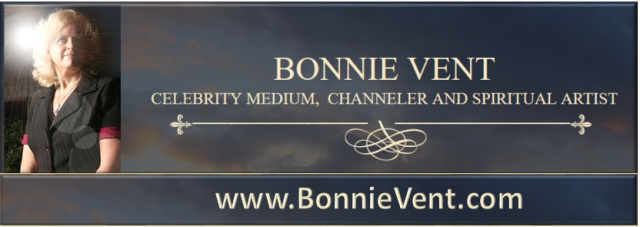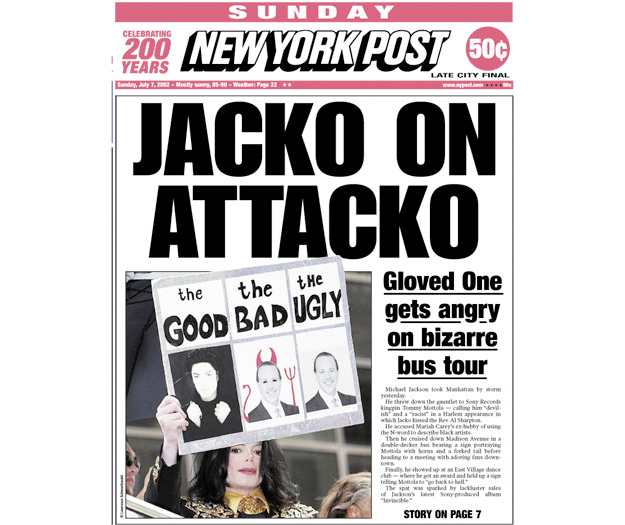Without saying a word, Michael Jackson dashed to his black limousine in Harlem yesterday after a meeting of his newly formed coalition to further the rights of black musicians. He had been expected to address reporters but his silence raised even more questions about his recent behavior, particularly toward Thomas D. Mottola, chief executive of the Sony Music Group.
Mr. Jackson has depicted him as the devil, waving photographs of Mr. Mottola scrawled with horns and a pitchfork at a Manhattan rally on Saturday. Mr. Jackson contends that the music business is racist. But it is widely believed in the industry that his new passion for struggling black artists is an attempt to extract concessions out of Mr. Mottola.
Colleagues and industry executives said they believed that he was pressuring Sony to renegotiate certain aspects of his contract. The company is not likely to agree because it has not yet recouped the $50 million it paid to make and market Mr. Jackson's most recent album, ''Invincible.'' But it has sold a lackluster two million copies in the United States, leading Mr. Jackson to assert that Sony did not do enough to promote it, a notion Sony has denied.
The roots of the brouhaha between Mr. Jackson and Mr. Mottola began earlier this year, people involved say, when Mr. Jackson and his lawyer, John Branca, started negotiating with Sony over how Mr. Jackson could get out of his contract.
Mr. Jackson wanted two things: first, he wanted to take possession of his valuable catalog of master recordings in three years, reduced from the period of at least seven years in his contract. Owning those rights are valuable because once Mr. Jackson owns them outright, he does not have to split royalty payments with Sony as he does now.
Second, these people said, Mr. Jackson objected to Sony's refusal to further support ''Invincible,'' which included declining to pay a proposed $8 million for his third video from ''Invincible.'' Mr. Mottola declined requests for comment.
To further complicate matters, Mr. Jackson and Sony Music Entertainment, Sony's music publishing arm, are equal partners in a joint venture that began in 1995 when Mr. Jackson combined his catalog of copyrighted music with Sony's, including songs by the Beatles. People close to Sony say that Mr. Jackson has approached Sony about acquiring its 50 percent stake in the music publishing business, a notion Sony has balked at. Instead, industry executives say, Sony would like to own Mr. Jackson's share, and he has refused to sell.
In an interview on Monday, the Rev. Al Sharpton said he received a call from Mr. Jackson in late May asking if he would support an initiative to help black musicians. ''Michael had told me he was involved in a negotiation at that point,'' Mr. Sharpton said. ''But I did not know if it had turned hostile or not.''
In fact, people involved say, it already had. In May, according to foreign news reports, European fans of Mr. Jackson began campaigning against Sony for not promoting ''Invincible,'' sending e-mail messages to Sony and faxing black paper to Sony offices.
Mr. Sharpton said he wanted to help Mr. Jackson and called the lawyer Johnnie Cochran, who defended O. J. Simpson.
Mr. Sharpton said he and Mr. Cochran met with Mr. Branca several times in May to discuss their strategy. Mr. Sharpton agreed that the exposure would help him and his National Action Network. ''The fact of the matter is if that is part of the reward, so what?'' he said.
Mr. Branca did not return repeated phone calls to his office. On June 5, Mr. Sharpton held a news conference in New York City to announce the new coalition for black artists. Mr. Sharpton read a statement from Mr. Jackson. But what has surprised many in the industry is how quickly the fight between Mr. Jackson and Mr. Mottola turned nasty. At an appearance last month in London, Mr. Jackson first attacked Mr. Mottola.
Sony has denied it has done anything wrong. ''In launching an unfounded and unwarranted attack on this man's reputation, Mr. Jackson has committed a serious abuse of the power that comes with celebrity,'' a representative said.
Two people close to Mr. Jackson said he was preparing to sue Sony. ''If you look ahead to what can happen, it's in the courtroom,'' one of these people said. ''Then it gets interesting.''
Photo: Michael Jackson, center, met with the lawyer Johnnie Cochran, left, and the Rev. Al Sharpton yesterday. Mr. Jackson has accused the Sony Music Group of racism for not enthusiastically promoting his album. (Chester Higgins Jr./The New York Times)



 Michael Jackson's 2002 will has a mistake in it, TMZ has learned -- but it looks like a case of no harm, no foul.
Michael Jackson's 2002 will has a mistake in it, TMZ has learned -- but it looks like a case of no harm, no foul.